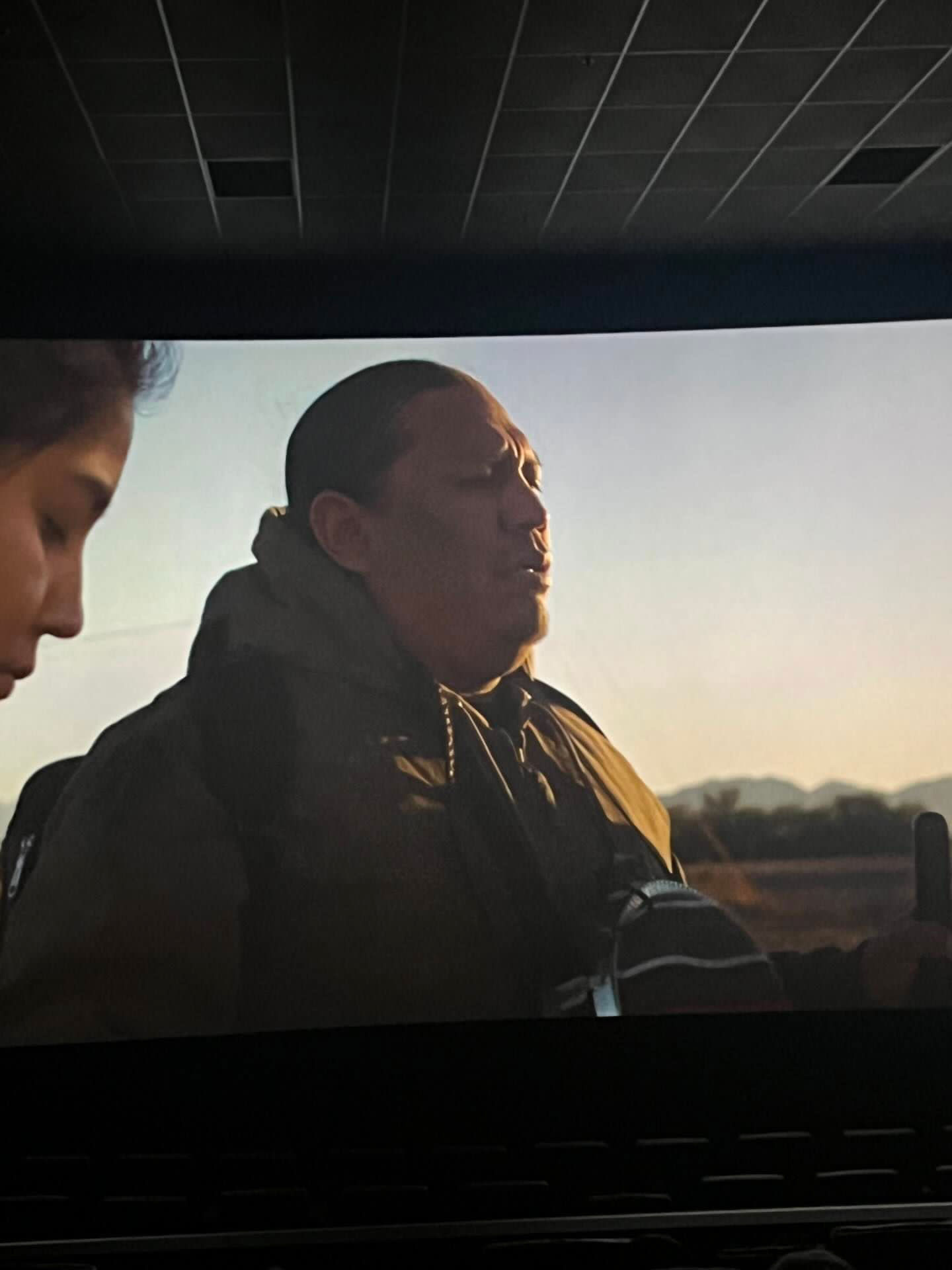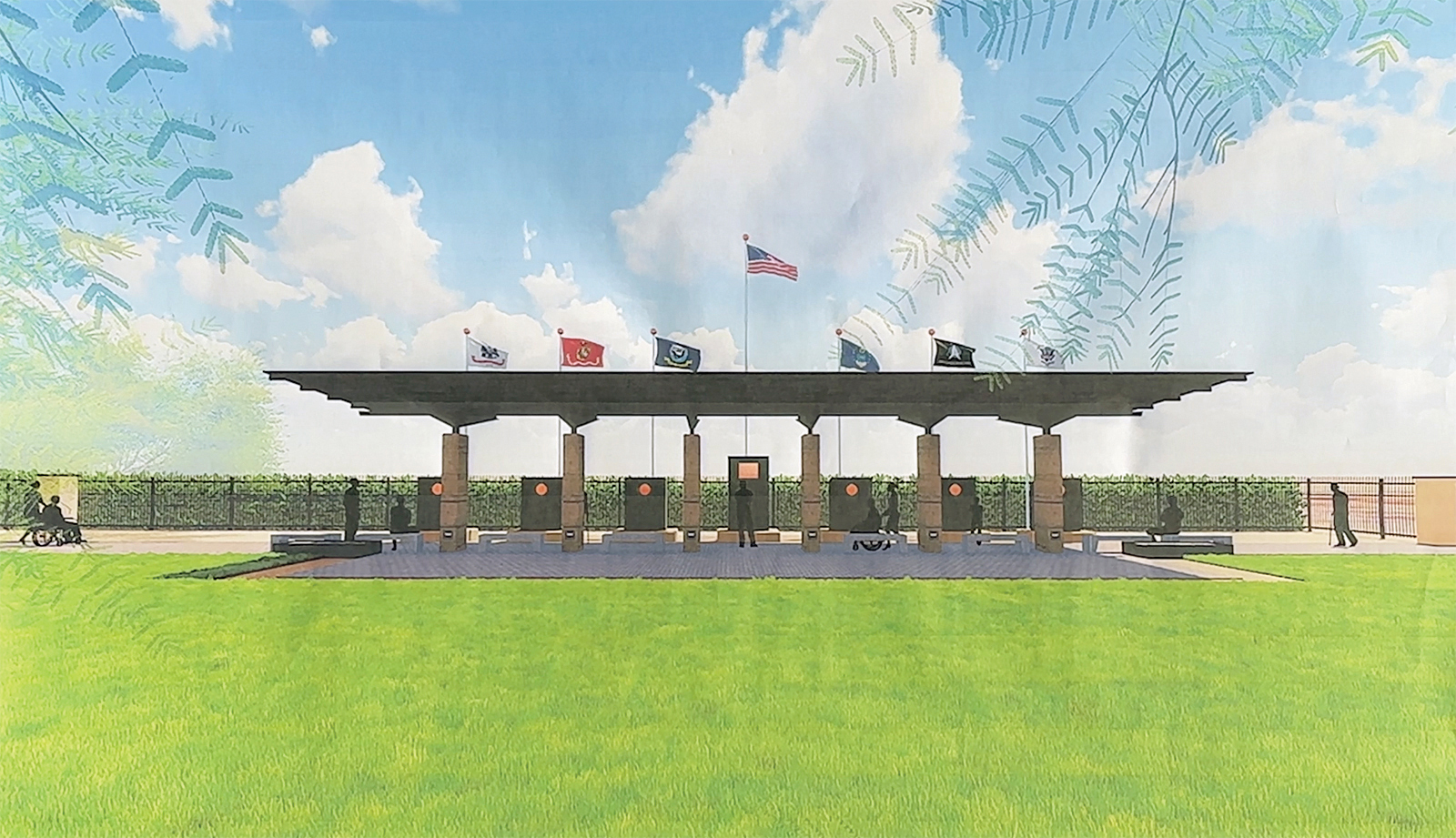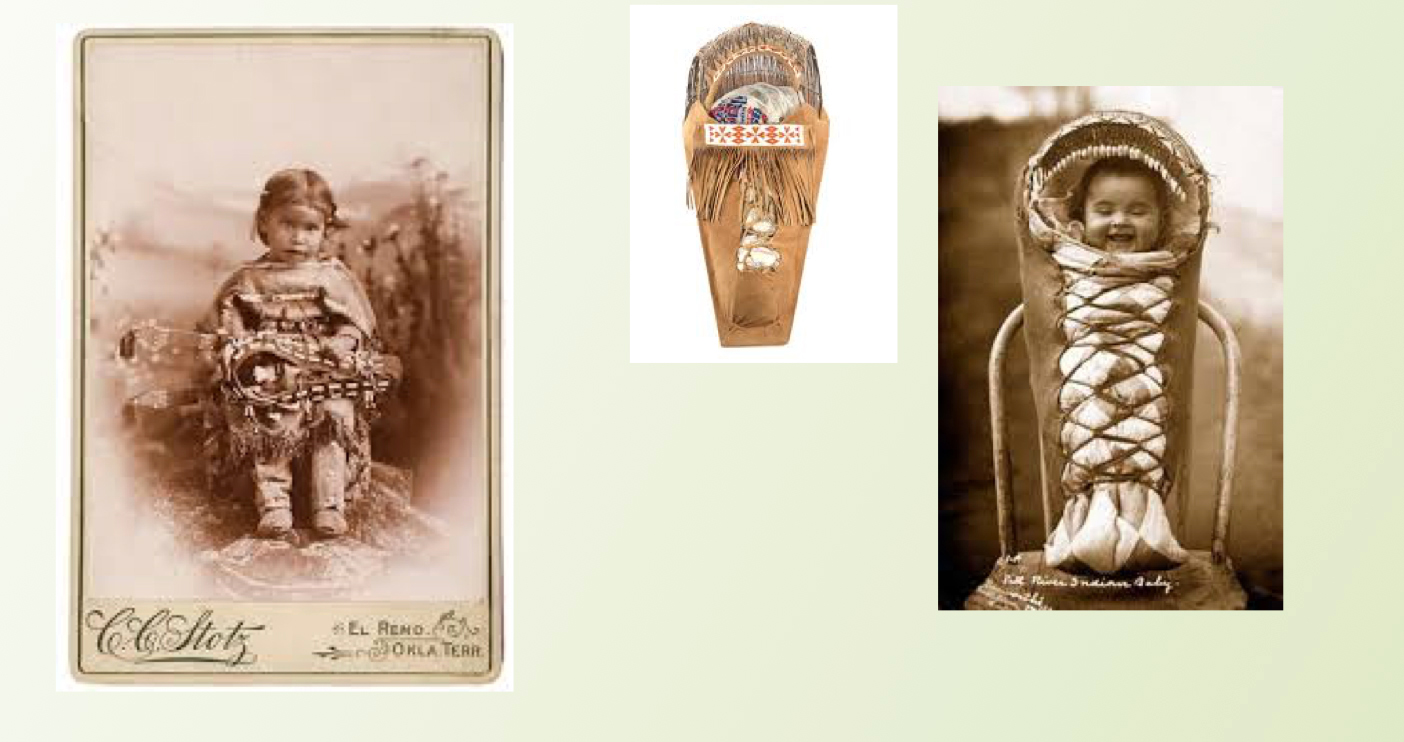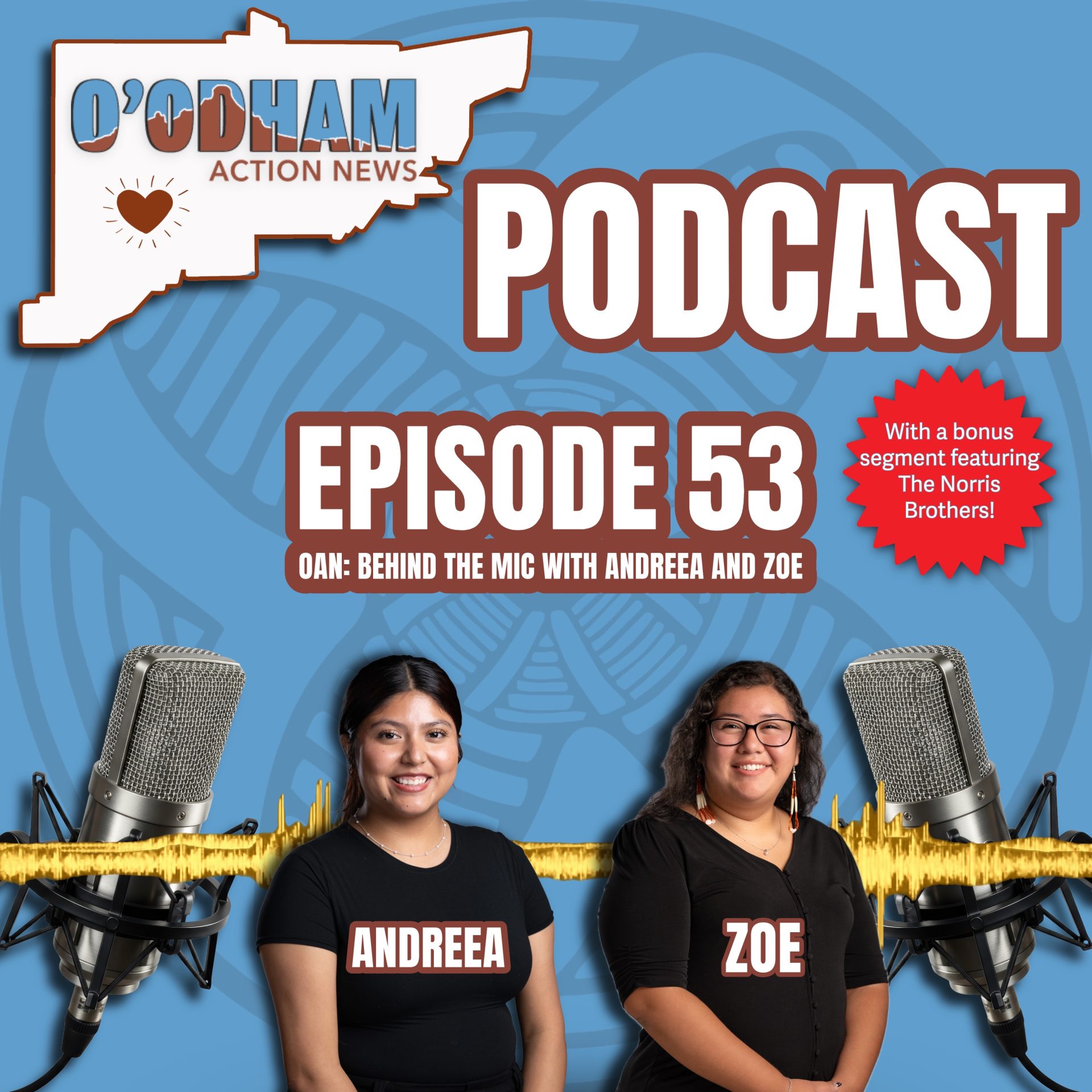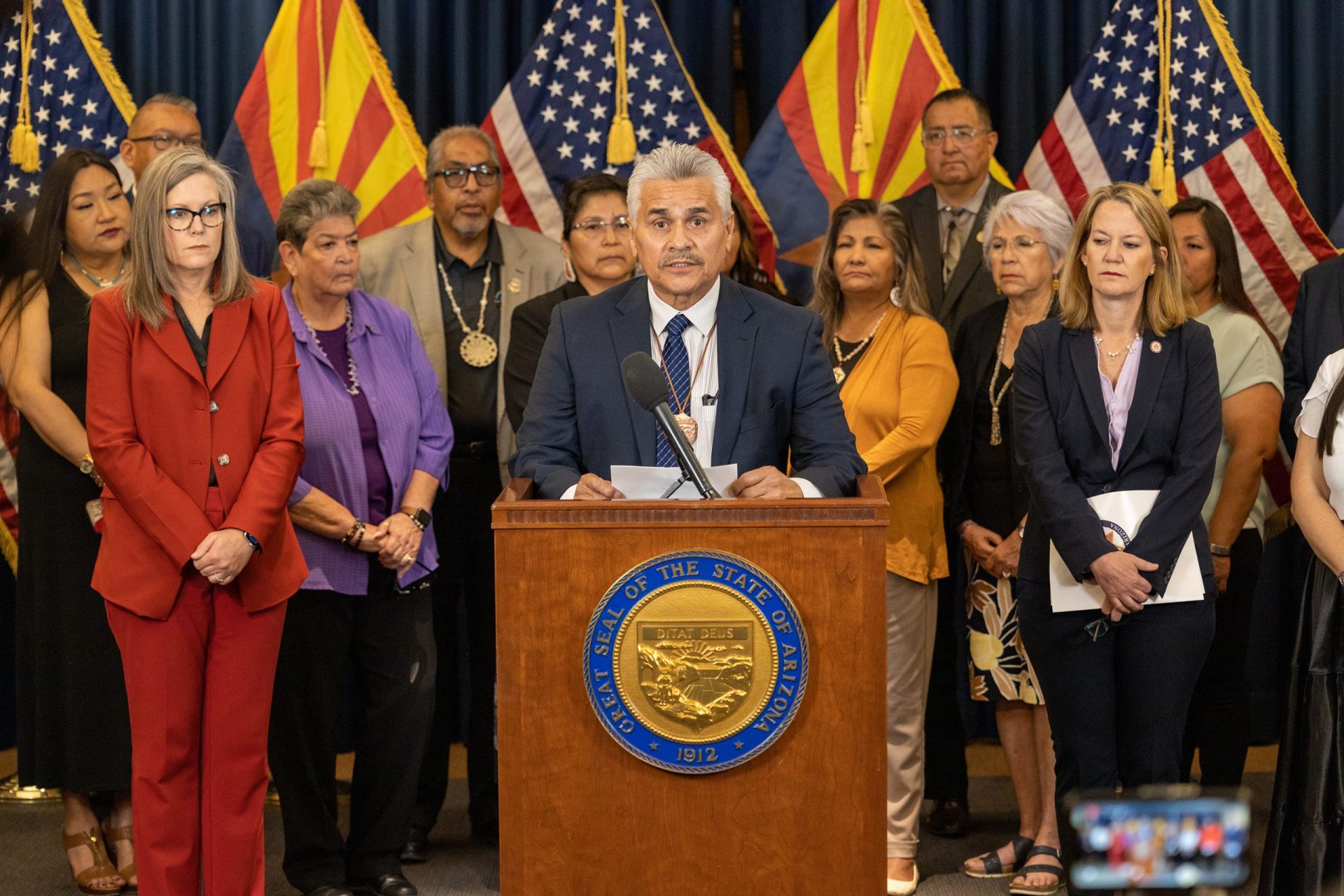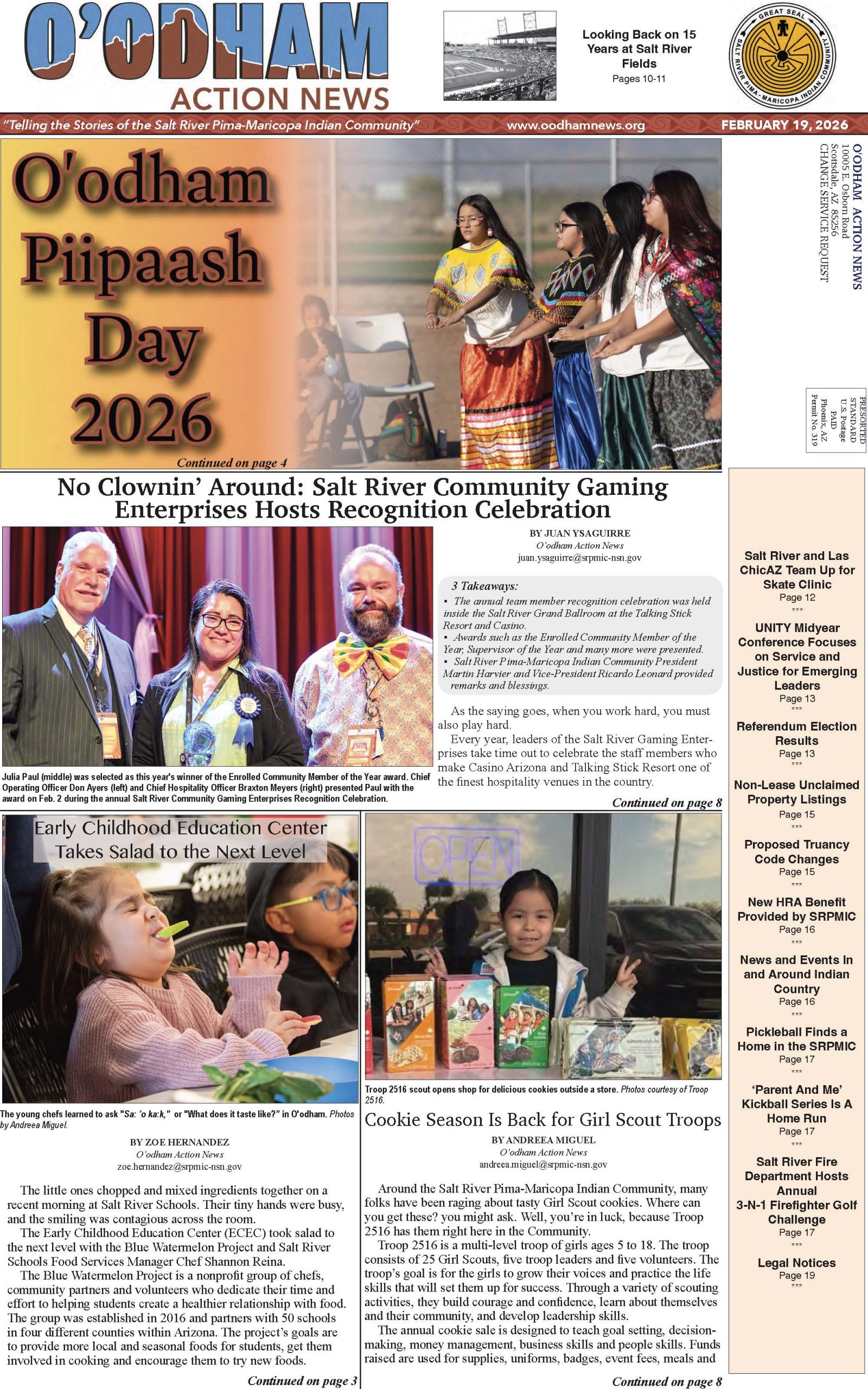VIEWS: 2374
May 8, 2024Community Member Appears on the Big Screen at Phoenix Film Festival
Native American representation in films has come a long way. Leaving behind the stereotypical “Indian” portrayal in Westerns, cartoons and animated children’s films, Native American creatives now take control of the narrative and share accurate depictions of Native American life through the power of cinema.
For the past 24 years, the Phoenix Film Festival has given filmmakers a platform to share more than 250 films with over 20,000 filmgoers. This year’s festival took place at the Harkins Scottsdale 101 theatre April 4-14. This year the festival’s Community Spotlight Program, a curated selection of films dedicated to highlighting underrepresented voices, showcased two feature films and eight shorts directed by Native Americans.
“Representation matters! The Native American experience, throughout everyday life, within the many unique cultures, and looking back on the course of history, must be told by the people who are living it,” said Monte Yazzie, director of Native American programming for the Phoenix Film Festival. “Sharing these stories with the general public preserves the culture by promoting an accurate representation of what it means to be Indigenous.”
The shorts covered various issues in Indian Country such as culture loss, the Missing and Murdered Indigenous Women movement, land reclamation and border relatives.
One of the shorts, “Two Worlds” by Hunter Redhorse Arthur, featured scenes filmed right in the backyards of Salt River Pima-Maricopa Indian Community member’s homes. Community member Gabriel Scabby even acted in the film and saw himself on the big screen for the second time.
“To see myself front and center, when I thought I was going to be in the background, was really exciting,” said Scabby. “A friend of a friend approached me, looking for a location to shoot, and then Hunter Redhorse asked me if I would be interested in being in the film.”
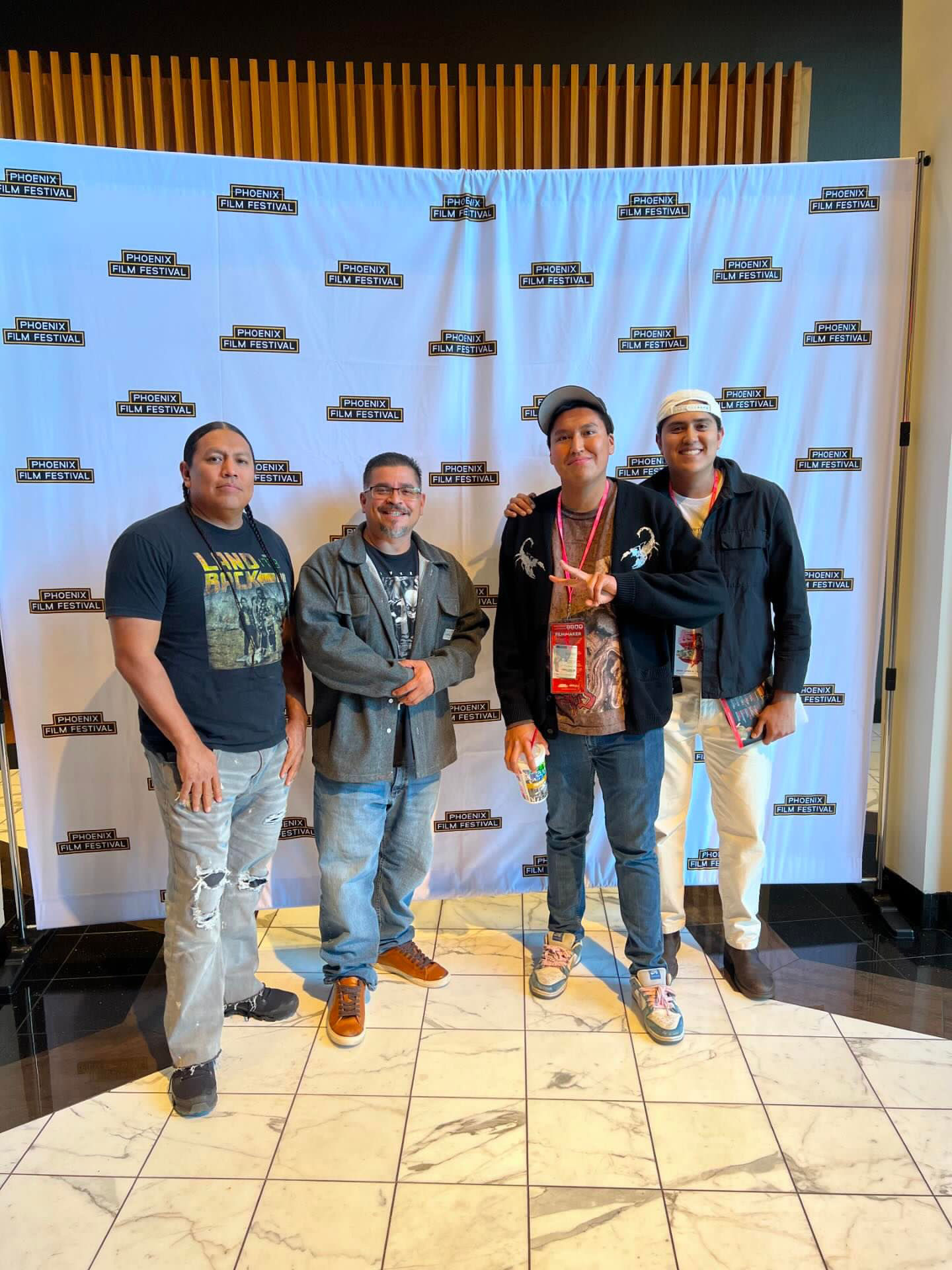
Scabby played an uncle in “Two Worlds.” The short film follows a father and daughter searching for their lost loved one in the SRPMIC. Their struggle to find their relative is filled with adversity, compared to the determined efforts to locate a missing Scottsdale woman. Though Hunter Redhorse Arthur is a Diné filmmaker, the story he shares on screen reflects a harsh reality for the Community and many other tribal nations.
In the film, Scabby and his on-screen “family members” lead a determined search on foot for their lost relative. Each scene Scabby acted in was done in the improv style. Scabby also opened up his home in the Lehi District to the film crew.
“Watching the film crew do their movie magic was amazing. It was cool to see [what’s involved] behind the scenes of a film, with all the hard work and creativity. It’s important to understand the director’s creativity, so I can help capture their vision,” said Scabby.
In addition to the Phoenix Film Festival, ”Two Worlds” was also screened at the LA Skins Fest, a Native American film festival in Hollywood. “I wish I could have gone, so I could say I had made it to Hollywood!” said Scabby.
As a film enthusiast, Scabby hopes to share the art with other creatives in the Community. “It is such a big time for Natives in film right now. We’re looking at bringing film opportunities to Community members, whether as video creators, actors, crew members or makeup artists,” said Scabby. “Filmmaking is one of the best things I could do every day, every year. I encourage everyone to get behind that camera make their dreams come to life.”
Through the Community Spotlight films screened at the Phoenix Film Festival, audience members can see authentic perspectives from the real storytellers.
“It’s important for filmmakers to tell their stories. We want these stories to be seen. For any filmmaker looking for opportunities to showcase their films, look for local film festivals like the Phoenix Film Festival where you submit your film. But also look nationwide, as there are so many film festivals tailored for Indigenous voices,” said Yazzie.

